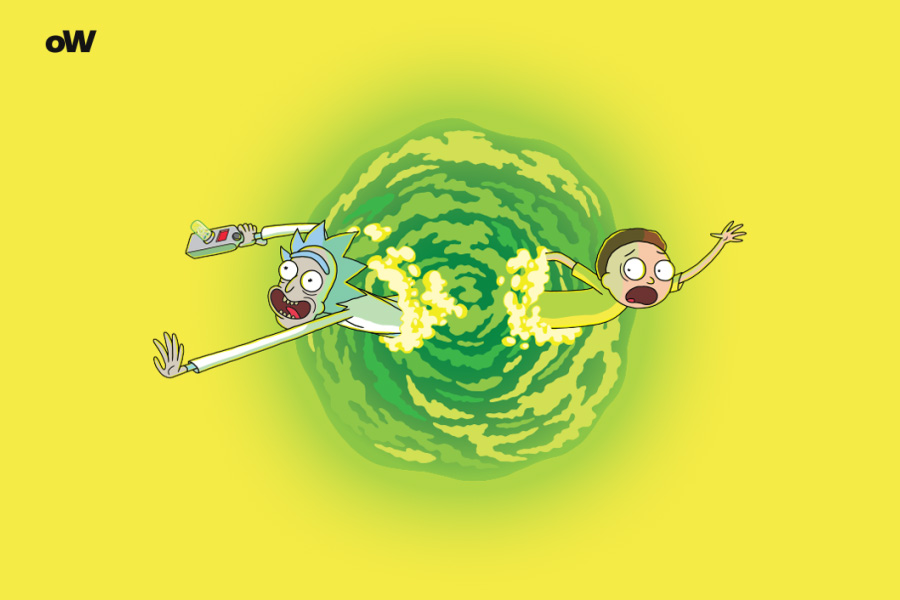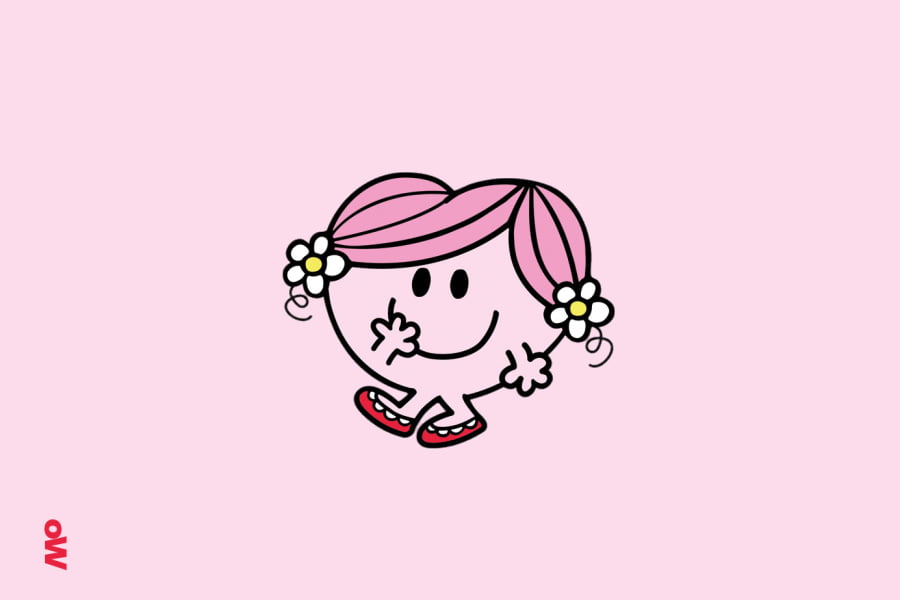Quiz: Which Seinfeld Character Are You?

Have you ever caught yourself reacting to life situations exactly like one of the characters from the iconic TV series “Seinfeld”? Perhaps you’re as meticulous about small details as Jerry, or share George’s paranoid fears? Maybe you embody Kramer’s creative chaos or Elaine’s sharp tongue? Our quiz will help reveal which hero from the “show about nothing” is hiding deep in your soul, and why this revelation might tell you more about yourself than you think.
A Brief Look at Seinfeld
“Seinfeld” is not just a sitcom that aired on NBC from 1989 to 1998. It’s a cultural phenomenon that forever changed the face of television comedy. Created by comedian Jerry Seinfeld and writer Larry David, the series was revolutionary in its approach: instead of traditional storylines about family or work, it focused on absurd everyday situations and ridiculous social interactions among four friends in New York.
The paradox of “Seinfeld” lies in its famous concept of being a “show about nothing.” In a world where sentimental family sitcoms previously dominated, there emerged a series that didn’t try to teach viewers morality or develop deep plot arcs. Instead, it transformed the tiniest details of everyday life – restaurant queues, searching for a car in a parking lot, strange social customs – into a source of endless comedy.
More than 25 years after the final episode, which was watched by 76 million viewers, phrases from the series continue to live on in pop culture: “Yada yada yada,” “No soup for you!,” “Serenity now!” The show introduced terms that we still use in everyday speech: “close-talker,” “double-dipper,” “re-gifter.” And most importantly – the characters of “Seinfeld” have become archetypes of certain personality types that we constantly encounter in real life.
What Will the “Seinfeld” Quiz Tell About Your Personality?
When we take the “Which Seinfeld Character Are You?” quiz, we’re doing something more than just entertaining ourselves. We’re participating in a kind of psychological experiment. The characters in the series represent exaggerated versions of personality types that exist in the real world, and our similarity to them can reveal deep aspects of our character.
Psychologists note that people often identify with fictional characters who reflect their hidden traits or suppressed desires. The “Seinfeld” quiz works like a distorted mirror, showing us an exaggerated version of our own habits, fears, and behavioral peculiarities. This gives us an opportunity to see ourselves from the outside, perhaps even recognizing qualities that we’re not always ready to accept in ourselves.
If you get a “Jerry” result, it might indicate your analytical mind, tendency to observe others, and a mild form of perfectionism. “George” might reflect your inner fears, complexes, and ability to find complications where there are none. “Elaine” speaks to your determination, straightforwardness, and skill at balancing professional and personal life. And “Kramer” might testify to your spontaneity, creativity, and unwillingness to follow conventional rules.
But there’s another important aspect: the characters of “Seinfeld” are remarkable for their flaws. Unlike many other series, there are no perfect heroes here – they’re all selfish, sometimes petty, and often make wrong decisions. Identifying with such a character helps us accept our own imperfections and laugh at them, which is an important step toward self-acceptance.
Meet the Main “Seinfeld” Characters Featured in the Quiz
Each “Seinfeld” character presented in our quiz is a unique combination of human qualities taken to comical absurdity. Sometimes selfish, occasionally ridiculous, but always recognizable – these characters have become mirrors of our own quirks and complexes. Let’s get to know each of them more closely and discover what character traits make them so unique and simultaneously relatable to each of us.
Jerry Seinfeld
Jerry is the central figure of the series and a sort of anchor to which the other characters are tied. Playing a semi-fictional version of himself, Jerry embodies the image of an observer and commentator on the absurdity of everyday life. His apartment serves as the main setting, and his career as a stand-up comedian allows him to professionally analyze and mock the quirks of those around him.
Jerry’s key personality traits include meticulousness, a tendency toward order and cleanliness, sarcastic humor, and a certain emotional detachment. He’s the only one of the four who usually maintains common sense and a sober view of the situation, although his own moral compass often malfunctions. The famous episode where he breaks up with a girlfriend just because she eats peas one at a time perfectly illustrates his inability to compromise and tendency to find flaws in others.
“I don’t know how people don’t break up every 20 minutes” – this quote from Jerry reflects his approach to romantic relationships: a constant search for the ideal and refusal to accept even minimal flaws in a partner. If Jerry’s position resonates with you, you’re probably a person who values your personal space, is self-sufficient, possesses a heightened sense of observation, and tends to seek logic even in absurd situations.

George Costanza
George Costanza, inspired by the series’ co-producer Larry David, is perhaps the most complex character in “Seinfeld.” Balding, short, perpetually dissatisfied with life, George is the embodiment of human neuroses, fears, and complexes. He constantly lies, wriggles out of situations, and creates elaborate schemes to get what he wants, but in the end, his plans invariably fail in the most catastrophic way.
George’s famous phrase: “If every instinct you have is wrong, then the opposite would have to be right” became the philosophy of an entire episode where he acts contrary to his natural impulses and unexpectedly achieves success. This character illustrates the paradoxical nature of human psychology: despite constant failures, George maintains surprising optimism and belief that great success awaits him around the corner.
If you get a “George” result in the quiz, it might speak to your tendency toward self-analysis, sometimes veering into overthinking, your acute awareness of social norms (which you often violate), and a tendency to complicate simple situations. You might share his constant struggle between the desire to be accepted by society and the urge to follow your own, often selfish, interests.

Elaine Benes
Elaine Benes breaks stereotypes about female characters in sitcoms. Instead of just being the main character’s romantic interest (although she was Jerry’s ex-girlfriend), Elaine represents a full-fledged, multifaceted character with her own ambitions, flaws, and comedic storylines. She’s ambitious in her career, moving from working in publishing to a position at J. Peterman, straightforward in relationships, and not afraid to speak her mind.
Elaine is famous for her terrible dance (the “little kicks”), which became a meme long before the era of internet memes, her exclamation “Get out!” (accompanied by a strong push of her conversation partner), and her directness in expressing emotions. Unlike Jerry with his detachment and George with his neuroses, Elaine often acts impulsively, guided by momentary desires.
The legendary episode “The Contest,” where the characters bet on who can hold out longer without self-gratification, shows that Elaine faces the same human weaknesses as the male characters, which was a bold step for 1990s television. If you identify with Elaine, you probably combine professional ambitions with a rich personal life, value honesty in communication, and aren’t afraid to break social conventions.

Cosmo Kramer
Cosmo Kramer is the most eccentric and unpredictable character in “Seinfeld.” With his famous energetic entrance into Jerry’s apartment, wild hairstyle, and ridiculous business ideas, Kramer represents the embodiment of chaos and spontaneity. He lives by his own rules, seems to have no steady job, but always finds ways to survive and even occasionally thrive.
Kramer is a character existing outside the standard social matrix. He doesn’t follow generally accepted norms of behavior, doesn’t care what others think, and often comes up with unexpected but brilliant solutions in their simplicity. His business ideas, from a bra for men to a café where people make their own pizza, illustrate his unconventional thinking, which oscillates between madness and genius.
In the episode “The Keys,” when Jerry takes back his apartment keys from Kramer, we see how strongly Kramer’s natural way of life is disrupted, leading him to the impulsive decision to move to Los Angeles. This episode shows how important his social ecosystem is to Kramer, despite his apparent independence.
If the quiz identifies you as Kramer, you’re probably a person who values freedom over security, prefers to follow intuition rather than a plan, and possesses creative thinking that allows you to see opportunities where others see only obstacles.

How “Seinfeld” Characters Reflect Different Personality Types
The four main characters of “Seinfeld” can be viewed as representations of different aspects of human psychology and different approaches to life. Together, they create a kind of map of personality types that remains relevant today.
Jerry represents a rational, analytical approach to life. He’s an observer who tries to understand the chaos of the surrounding world through the prism of logic and humor. In psychological terms, he can be classified as an introverted-thinking type – he processes information internally and makes decisions based on logical analysis, not emotions.
George embodies the anxious, neurotic aspect of our personality. His constant fears, complexes, and self-doubt often cause him to act irrationally. In personality typology, George demonstrates a high level of neuroticism – a tendency toward negative emotions and stress.
Elaine combines social extroversion with practicality and assertiveness. She actively interacts with the world, strives to achieve her goals, and isn’t afraid of conflicts. Psychologically, Elaine can be characterized as an extroverted-decisive type, oriented toward action and results.
Kramer represents the creative, spontaneous, and unconventional aspect of personality. In terms of personality psychology, he demonstrates a high degree of openness to experience – readiness for new ideas, impressions, and non-standard approaches.
Interestingly, all these types are present in each of us in some proportion. We might be rational like Jerry in the professional sphere but anxious like George in personal relationships. We might show Elaine’s determination in some situations and Kramer’s spontaneity in others.
The “Which Seinfeld Character Are You?” quiz doesn’t just determine which of the show’s heroes you most resemble. It provides an opportunity to reflect on your own personality, your strengths and weaknesses, how you interact with the world around you. And perhaps most importantly – it reminds us that even with all our quirks, neuroses, and flaws, we deserve our own sitcom where these features become not just acceptable, but a source of endless humor and self-discovery.
Questions Overview
- Roll your eyes and make a sarcastic comment.
- Challenge them directly and loudly.
- Angrily mutter under your breath but say nothing.
- Avoid confrontation, but gossip about it later with friends.
- Buy a round of coffee for your friends.
- Invest in a wild and wacky invention.
- Head to the nearest fast food joint.
- Buy a new notebook to write your personal thoughts.
- They're too much effort, but you have them anyway.
- You float from one adventure to the next.
- You're a victim of your own neuroses.
- You're fiercely independent, but sometimes you wish for commitment.
- Make sarcastic hints every time you see them.
- Stage an elaborate scheme to retrieve it.
- Concoct an elaborate lie to avoid confrontation.
- Directly ask for it back with a playful jab.
- The one with average moves who blends in.
- The enthusiastic, wild, and unpredictable dancer.
- The insecure one who tries too hard.
- The one with the infamous "little kicks."
- It's your playground and you love the urban life.
- It's a place filled with unlimited potential and oddball opportunities.
- It's a love-hate relationship – mostly complaints.
- It's where your friends are, and that's what matters.
- Neat, classic, and no-nonsense.
- Eclectic, unique, and a tad unpredictable.
- Practical, with an occasional ill-fated experiment.
- Stylish, but sometimes you fall for unfortunate trends.
- A stand-up comedian, observing the quirks of life.
- Entrepreneur with quirky inventions and ideas.
- Whatever pays with the least amount of effort.
- A position in publishing, with lots of opportunity to voice your opinion.
- With humor and a sarcastic comment.
- Obliviousness and unintentionally making it even weirder.
- Panicking and probably making things worse.
- Asserting yourself, even if it might be awkward.
- Hold court with your witty observations.
- Bring in an odd item or story that steals the show.
- Complain about the food or find something to sulk about.
- Engage in deep (sometimes too deep) conversations with fellow guests.
- Comedies – you love to laugh at life's absurdities.
- Offbeat, quirky films no one's heard of.
- Whatever is relatable to your current life crisis.
- Dramedies – where humor meets real-life scenarios.
- Stay calm, maybe crack a joke when you finally arrive.
- Enter in a flurry, with a wild story about your delay.
- Make an elaborate excuse and hope no one digs too deep.
- Apologize sincerely but wonder if everyone's talking about you.
- It's amusing, and a great source of material.
- You're often unintentionally the source of it.
- You love it, especially if it's about someone else.
- You indulge occasionally, but mostly to bond with friends.
- Cereal, anytime, anywhere.
- Whatever odd concoction you've just dreamt up.
- Fast food, preferably with a lot of guilt attached.
- A big salad. But it has to be a BIG salad.
- The funny, observant one.
- The unpredictable wild card.
- The self-deprecating, often anxious one.
- The bold, opinionated go-getter.






